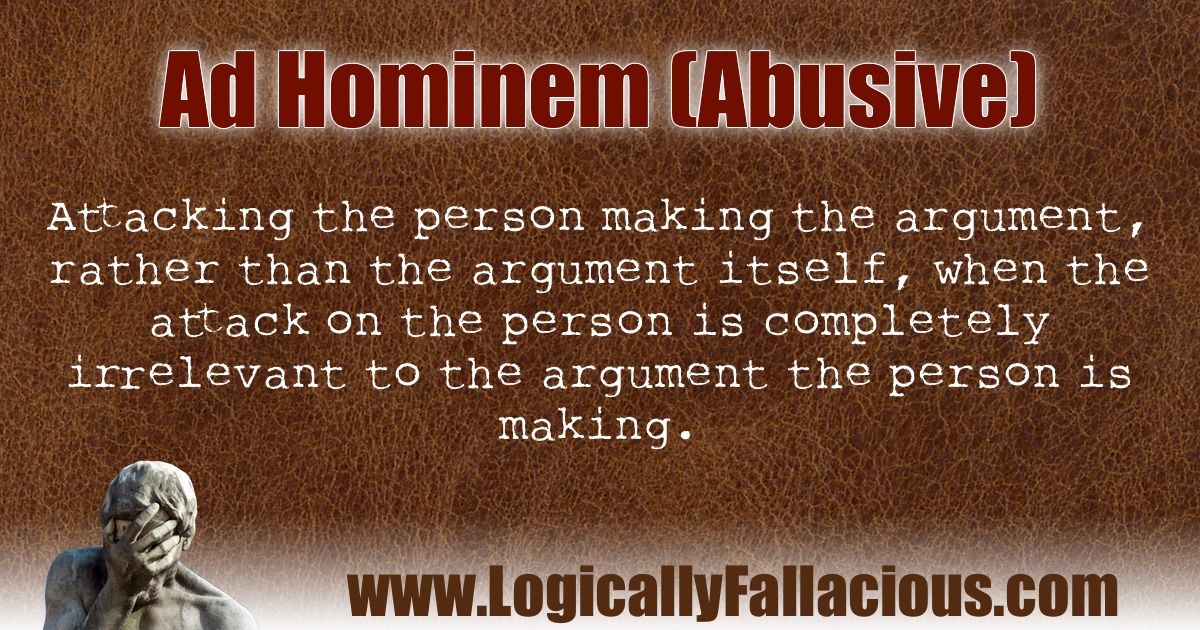argumentum ad hominem
(also known as: personal abuse, personal attacks, abusive fallacy, appeal to the person, damning the source, name calling, refutation by caricature, against the person, against the man)
Description: Attacking the person making the argument, rather than the argument itself, when the attack on the person is completely irrelevant to the argument the person is making.
Logical Form:
Person 1 is claiming Y.
Person 1 is a moron.
Therefore, Y is not true.
Example #1:
My opponent suggests that lowering taxes will be a good idea -- this is coming from a woman who eats a pint of Ben and Jerry’s each night!
Explanation: The fact that the woman loves her ice cream, has nothing to do with the lowering of taxes, and therefore, is irrelevant to the argument. Ad hominem attacks are usually made out of desperation when one cannot find a decent counter argument.
Example #2:
Tony wants us to believe that the origin of life was an “accident”. Tony is a godless SOB who has spent more time in jail than in church, so the only information we should consider from him is the best way to make license plates.
Explanation: Tony may be a godless SOB. Perhaps he did spend more time in the joint than in church, but all this is irrelevant to his argument or truth of his claim as to the origin of life.
Exception: When the attack on the person is relevant to the argument, it is not a fallacy. In our first example, if the issue being debated was the elimination of taxes only on Ben and Jerry’s ice cream, then pointing out her eating habits would be strong evidence of a conflict of interest.
Tip: When others verbally attack you, take it as a compliment to the quality of your argument. It is usually a sign of desperation on their part.

References:
Walton, D. (1998). Ad hominem arguments. University of Alabama Press.
Questions about this fallacy? Ask our community!